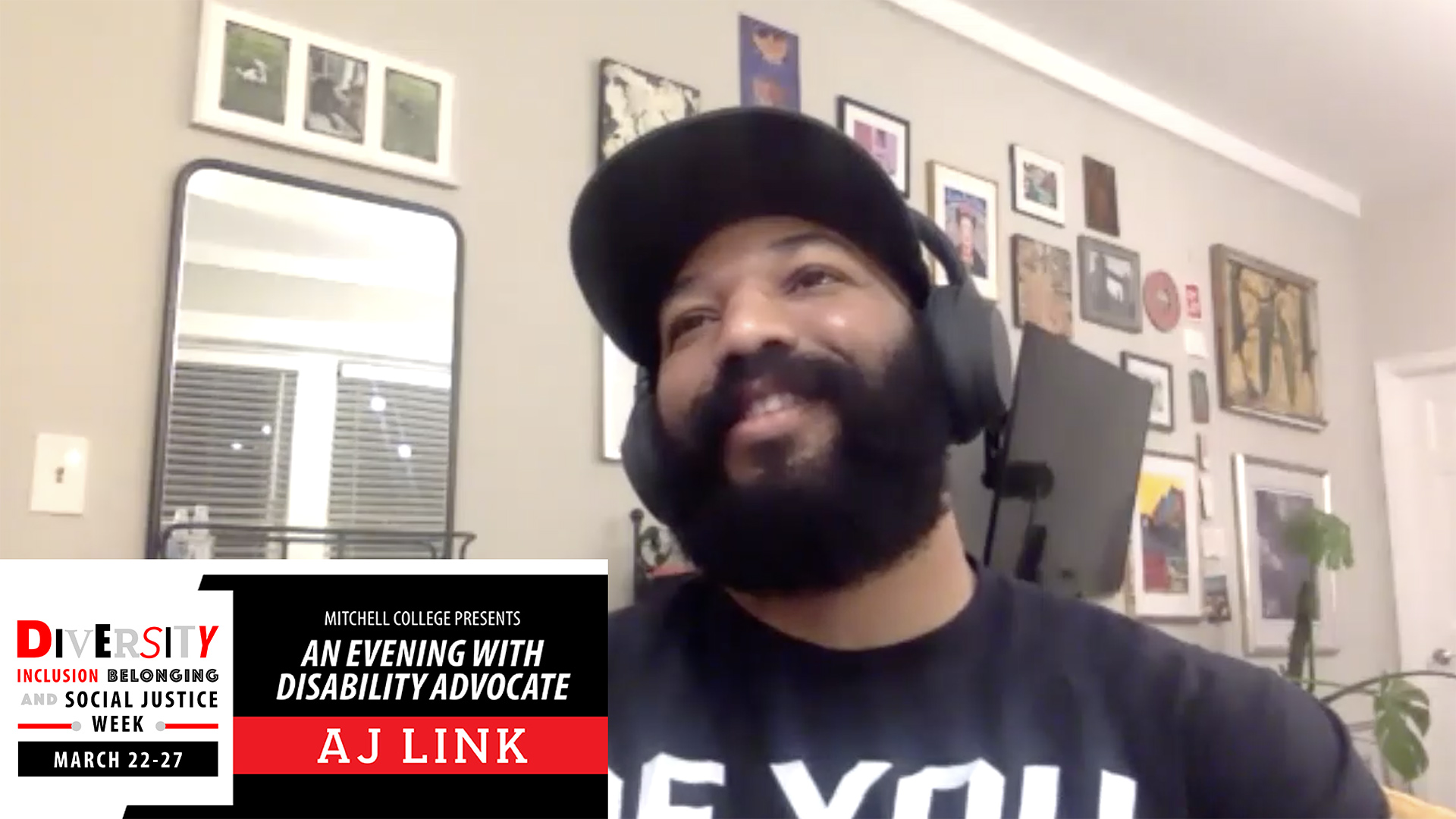View recorded webinar in its entirety at https://youtu.be/6dhhT5Gvke0
Mitchell College kicked off its Diversity, Inclusion, Belonging and Social Justice Week with virtual speaker AJ Link, a disability and human rights advocate, on Monday, March 22. AJ shared his story about his path to becoming an advocate in disability and human rights – from having a neurotypical experience growing up to being diagnosed with autism in his early 20s, then learning how to advocate for himself, and eventually others, in law school.
He touched on steps that higher education institutions can take to be universally accommodating, including class recordings and flexible attendance and class participation policies. He said that some people have bad anxiety and don’t like being called on in a class. An option is for professors to be open to pre-written answers that can be read by someone else, showing that a student is willing to contribute.
Other things to consider are closed captioning and sign language during oral presentations to offering quiet spaces, gender neutral bathrooms and ramps and elevators for building accessibility.
“If you do universal design, people don’t need accommodations or need to self-advocate because they can find a place to fit in,” he said.
AJ noted that universal design is not only for people with autism but also things like ADHD, dyslexia and severe anxiety or depression.
He also responded to comments and questions about accommodations for grades K-12 and workplace practices for employers. He said that providing an educational system where students who often fall through the cracks can thrive benefits society and sees it as an investment in student success, not a waste of money. AJ also said that employers should include disability in diversity initiatives and change what recruitment practices look like.
“The more accessible your recruitment is, the wider net you’re casting,” he said.
AJ also talked about social justice advocacy and activism and said it isn’t for everyone, but being a kind and decent human being is something that everyone can do.
“It is important that everyone feels seen and heard and has their humanity respected,” he said.
He added, “Being an ally is super important – you don’t have to be disabled to be a disability ally; you don’t have to be a Black person to be an ally to the Black community when you’re advocating for racial equity…If you genuinely care about creating a better, more equitable world, these are things that you should care about. If you see somebody advocating and they’re advocating alone, if you have the capacity and you’re willing to do it, I encourage you to go out there and support them.”
